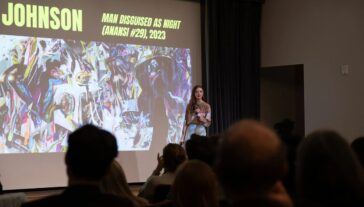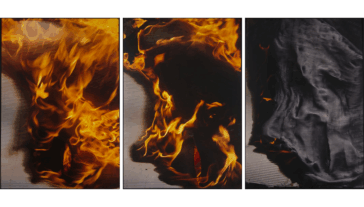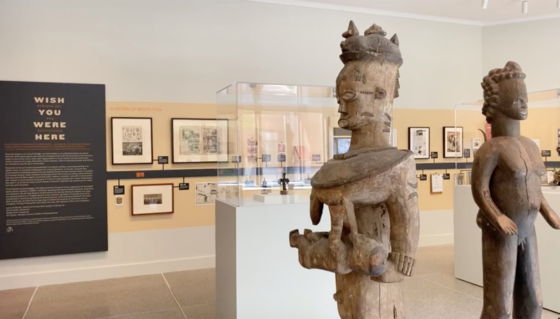UMMA Curator Wins National Award for Curatorial Excellence For Groundbreaking Exhibition on African Art
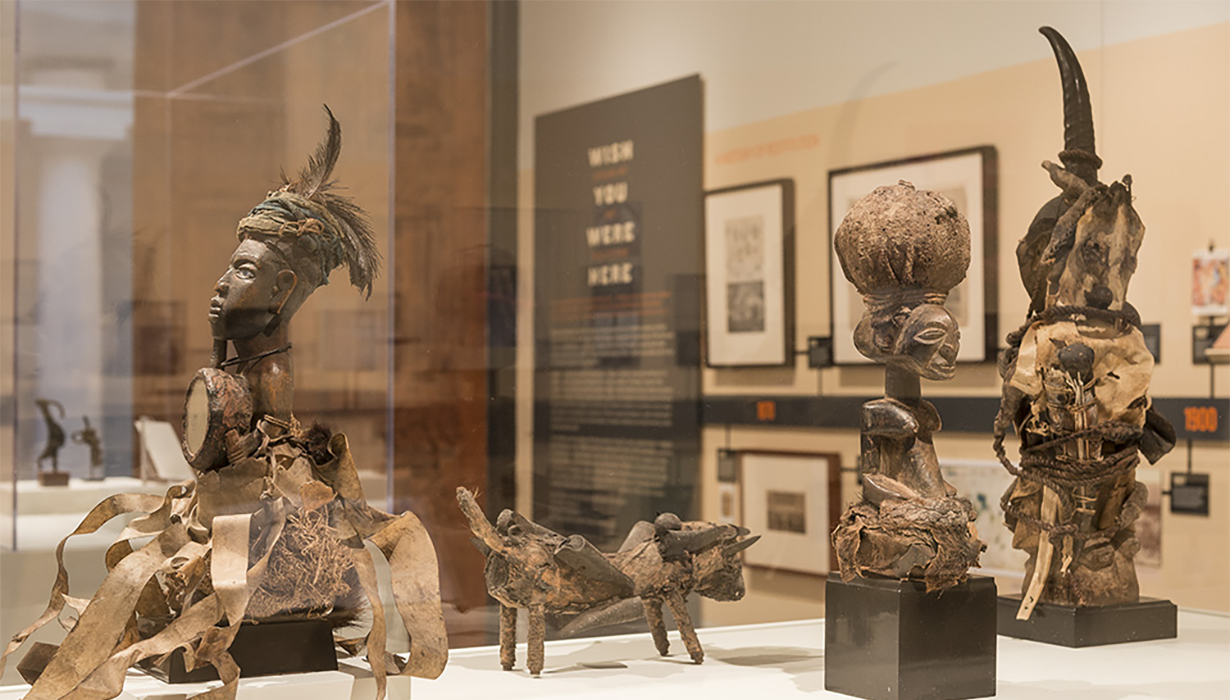
Ann Arbor, MI—The University of Michigan Museum of Art (UMMA) is proud to announce that Laura De Becker, Chief Curator and Helmut and Candis Stern Curator of African Art, has been honored with a prestigious national award for Curatorial Excellence from the Arts Council of the African Studies Association (ACASA).
This recognition comes as a result of her groundbreaking exhibition, Wish You Were Here: African Art and Restitution, which publicly investigated 11 significant works of African art within UMMA’s permanent collection. The exhibition, lauded for its innovative approach to provenance research and restitution, has had a profound impact on how museums engage with and understand African objects in their care.
Led by De Becker, the exhibition was made possible through the invaluable contributions of several co-curators and researchers, including Timnet Gedar, Bridget Grier, and Caitlyn Webster, whose rigorous research helped shape the narratives surrounding the objects and their public investigation notes. Ozi Uduma, former UMMA Assistant Curator of Global Contemporary Art, also played a pivotal role in the development of the exhibition, bringing her expertise and critical insights to the project.
Wish You Were Here has gained national and international attention, through presentations at a series of major academic and museum conferences. These include the Association of Academic Museums and Galleries (AAMG) 2023 conference, hosted by The University of Kansas, where De Becker was featured on a panel discussing “Making Repatriation and Restitution Visible: Case Studies involving NAGPRA and Beyond.” The exhibition was also presented at Neu Conversations 2024 at the Neuberger Museum of Art, where De Becker addressed the challenges and importance of provenance research and restitution, and at the ACASA 2024 conference at the Art Institute of Chicago in a paper titled “Thinking Out Loud.”
The exhibition’s impact has extended beyond academic settings, gaining the attention of the broader art community. It has been featured on The Modern Art Notes Podcast, a leading voice in art criticism and conversation, and was cited as an exemplary case in the Collaboration, Collections, and Restitution Best Practices for United States Museums Holding African Objects Working Group. Additionally, Wish You Were Here has been reviewed in African Arts, where it was praised for its sensitive and rigorous exploration of African art, its histories, and its modern-day implications for restitution and repatriation.
“We are incredibly proud of Laura De Becker’s achievement,” said Christina Olsen, UMMA’s Director. “Her work on Wish You Were Here reflects UMMA’s commitment to interrogating the complex histories of our collections and actively engaging with the issues of restitution and repatriation. We are also grateful to her collaborators, whose contributions were essential to the success of this project. This award is a well-deserved recognition of their collective, thoughtful, and collaborative curatorial approach, which invites audiences to think critically about museum collections and their legacies.”
As part of her continuing efforts, De Becker hopes to inspire other museums to take proactive steps toward transparency in provenance research and ethical collecting practices. Through Wish You Were Here, UMMA has taken a leadership role in addressing the often-controversial histories surrounding African art in Western museums, encouraging meaningful dialogue between institutions, communities, and the public.
The exhibition remains a significant part of UMMA’s ongoing mission to foster critical engagement with art, pushing the boundaries of traditional museum practice and scholarship. Wish You Were Here underscores the necessity of rethinking how museums hold, display, and interpret objects, ensuring that the complex narratives of African art are told with respect, accuracy, and justice.
For more information on the exhibition and to explore detailed notes about the investigations that were a part of it, visit the Wish You Were Here exhibition page.
Photos from the ACASA Award Ceremony
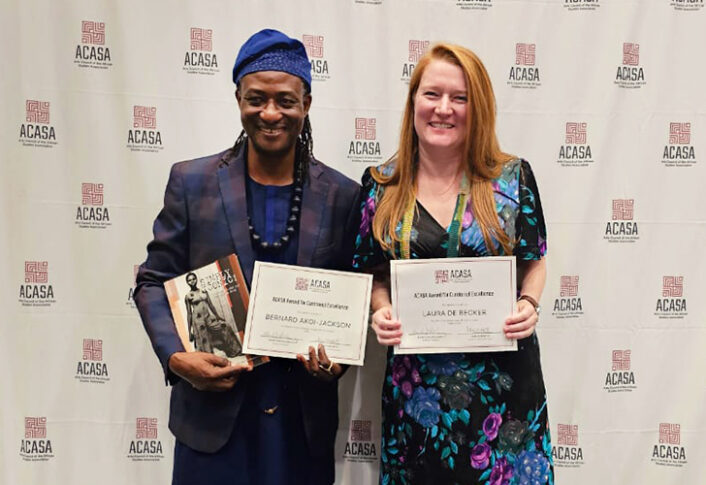

More from UMMA
